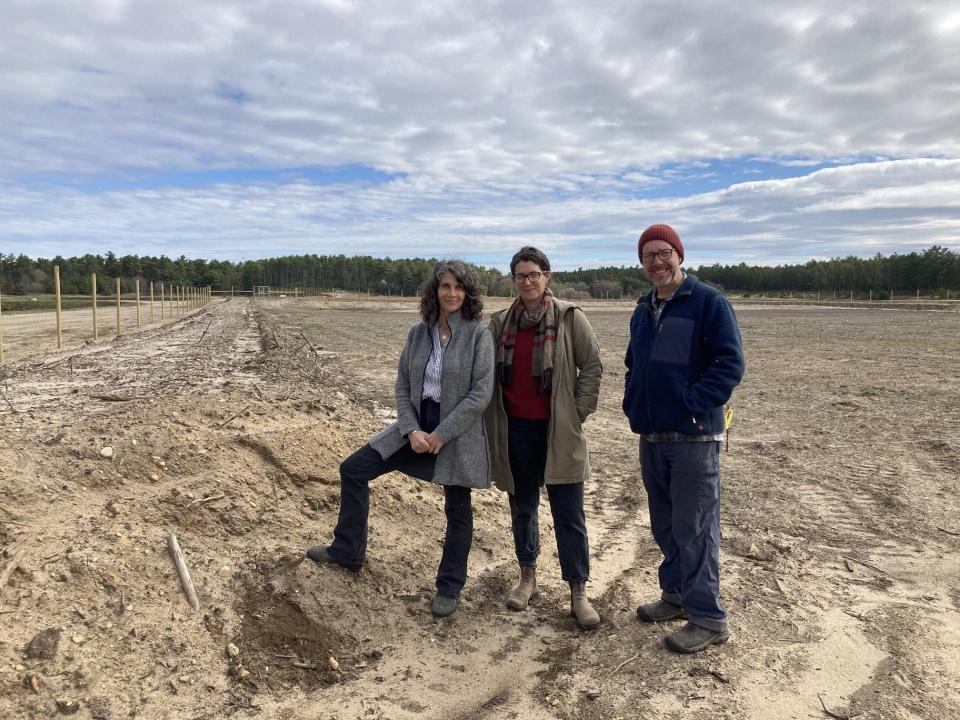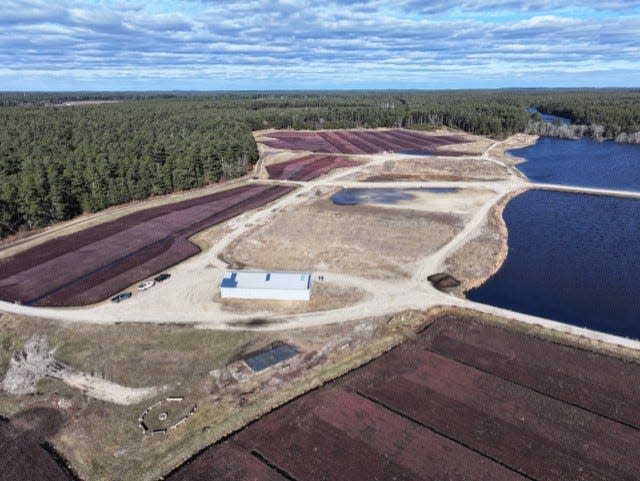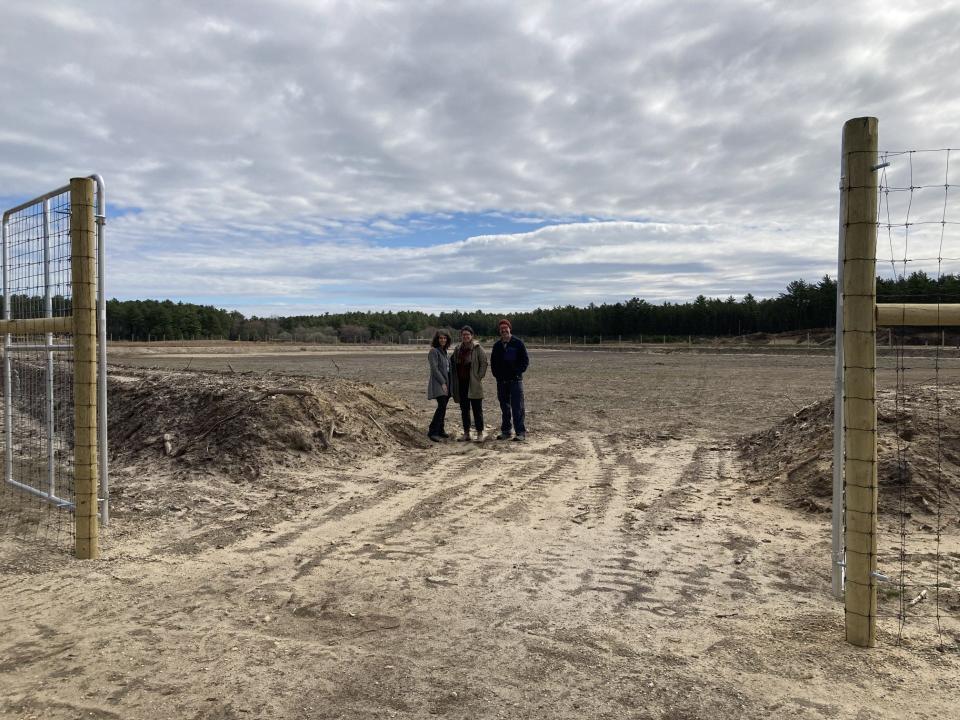New farm-to-food relief program to benefit Bristol, Norfolk and Plymouth counties
Frogfoot Farm’s long-term future will be largely driven by volunteers willing to help stock local food pantries in three counties.
Marion Institute Executive Director Liz Wiley said the goals for the first one or two years of the Wareham-based farm will be to build up the site, ultimately leading to the planting of traditional plants and vegetables to produce nutritious food for those in need.

The Marion Institute’s new Neighbors Feeding Neighbors farm-to-food relief program focuses on how to help increase the amount of healthy, nutritious and culturally relevant food in food pantries and other area food relief programs, she said.
“Our priority this year is to build up the infrastructure,” she said. “We just put a fence in in March all around the perimeter, and we are growing soil this year,” Wiley said. “Nutritious soil is our main focus.”
How you can help
After putting out a call to their followers asking for donations of gently used tools, they are asking volunteers to donate the tools they will need to begin to farm the land – everything from shovels, steel rakes, pitchforks, hoses and hand tools to wheelbarrows and garden carts.
Wiley said they are applying for grants to get hoop houses, a greenhouse and proper propagation to allow them to start slowly but do it right.
A.D. Makepeace is leasing two plots of land of approximately three acres each along with some building space to the Marion Institute and providing some support with soil building and irrigation, but the Marion Institute will fundraise and write grants for everything else that’s needed.
The south field they are focusing on first has been planted with a cover crop of sudangrass for use as a soil builder to contribute to its overall health. Wiley said they are using regenerative farming and agro-ecology practices to bring back the soil and biodiversity around the farm.

Food for three counties
Distribution of the food from the fields will be through area food pantries in Bristol, Plymouth and Norfolk counties representing more than 1,500 farmers with help from Damien's Food Pantry in Wareham and the South Shore Community Action Council in Plymouth.
The Marion Institute runs the South Coast Food Policy Council program. Working with its Community Advisory Board consisting of about 30 food system stakeholders on the South Coast, from farmers to fishermen, food pantry leaders to institutional buyers, it conducted a food system assessment during the pandemic that was published it in 2021.
Wiley said the report showed glaring weaknesses in the regional food system, and the goal is to represent different aspects of the food system and the geographic area from Wareham to Fall River.
After spending three months studying the report and identifying 27 priorities, four working groups covering education, food insecurity, policy and capacity building were created to move the project forward while focusing on reducing the reliance on ultra processed foods.
“In our food access working group, two of the main priorities were the lack of healthy, nutritious and culturally-relevant foods in food pantries since they just don’t get access to it, and a survey we did with consumers said that the hardest to get food items are fruit, vegetables, meat and dairy – all the basics,” she said.
She said another glaring priority in southeastern Massachusetts is the need for a regional gleaning program. If a farmer is unable to harvest a crop because they don’t have the labor to work the field or a market to sell it to so it won’t go to waste in the field, they can call on trained volunteers who are gleaners to recover the food from the fields.
“If a farmer calls and says I have a crop of butternut squash that I’m not going to harvest, they can call gleaners, and they would come and harvest that crop, and then all of that food would go into food relief,” Wiley said.
Neighbors Feeding Neighbors volunteers and volunteers trained as gleaners or are interested in becoming gleaners could go to other farms in the area.
All about the infrastructure
In the first year of farm operations overseen by Farm Manager Hannah Traggis, they are working on the infrastructure. The six acres that have never been farmed and had never had a cranberry bog on it will remain as sandy soil.
Frogfoot farmer Scott Codey said the cover crops that will be planted this year there will be a combination of buckwheat, sorghum, sudangrass, sun hemp and oats.

Marion Institute Director of Food Access and Innovation Rita Higgins said there’s also a need for volunteers to help clear out a pocket of invasive plants.
There are also berms around the edges where they will be creating pollinated gardens where bees will in the sand undisturbed. The berms will ultimately be a wind break with plantings of native hedgerow to offer protection from the wind.
The core windbreak plants will likely be bayberry and beach plum that grow up to 10 feet in height, the core grasses will include little blue stem, lovegrass and switchgrass, and the flowery plants will be bergamot and yarrow.
Higgins said Traggis will be working with the Freed Seed Federation based in Westport, a nonprofit that focuses on seed saving, seed trials of heirloom seed and the building up of native seed sources that are a New England ecotype.
She said they are modeling the program after the Martha’s Vineyard Island Grown Initiative farm. Ultimately, they hope to plant up to 100 different species in the berms.
Standard-Times staff writer Kathryn Gallerani can be reached at kgallerani@gannett.com. Follow her on Twitter: @kgallreporter. Support local journalism by purchasing a digital or print subscription to The Standard-Times today.
This article originally appeared on Standard-Times: Marion Institute’s Neighbors Feeding Neighbors targets food needs

